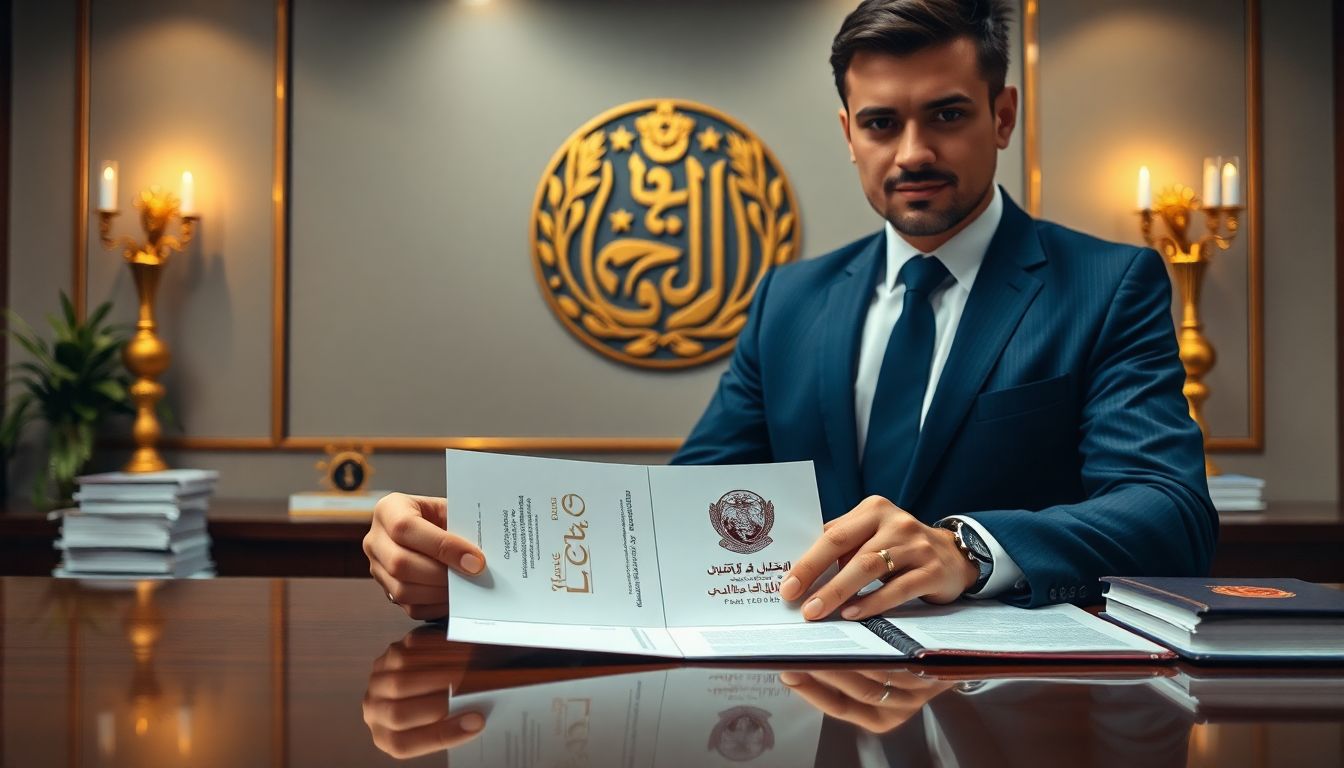
Qatar Embassy Attestation: Your Definitive Guide to Certificate Authentication for Qatar
Introduction
Getting your documents ready for Qatar can seem like a tough task. Why? Because Qatar’s rules about valid paperwork are very strict. Whether you plan to work, study, or move there, your documents need to be authenticated. Without proper attestation, your plans could get stuck. Understanding the entire process can save you time, money, and stress. This guide will give you all the details on attesting your certificates for Qatar.
What is Qatar Embassy Attestation?
Definition and Purpose
Embassy attestation is a process that proves your documents are genuine. It involves verifying the authenticity of your certificates or papers through official authorities. In simple words, it confirms that your document is real and accepted in Qatar. Different types of documents, like academic degrees or personal records, may need their own types of attestation.
Common Reasons for Attestation
People get their documents verified for many reasons. These include:
- Moving to Qatar for work or living
- Applying for higher education or professional licenses
- Setting up a business or completing legal formalities
Knowing why you need attestation helps clarify which documents should be verified first.
Types of Documents Requiring Attestation for Qatar
Educational Certificates
Educational certificates cover degrees, diplomas, and transcripts. These documents show your academic background. If you’re applying for a job or school in Qatar, attested educational certificates are a must.
Commercial and Business Documents
Business papers include certificates of incorporation, power of attorney, and other legal papers. They are needed if you’re starting a company or doing business with partners in Qatar.
Personal Documents
Personal papers include birth certificates, marriage certificates, and affidavits. These are essential for getting family visas or legal proof of identity in Qatar.
Step-by-Step Process of Qatar Embassy Attestation
Preparing Your Documents
Before submitting, your documents may need notarization or translation. Make sure they are current, legible, and meet the embassy’s standards. Keep copies ready and check all details.
Attestation Workflow
The process starts at local authorities. You first get documents notarized by a public notary, then legalized by the Ministry of External Affairs (MEA). After that, they are attested by the Qatar Embassy in your country. Each step verifies your papers move closer to approval.
Timeline and Cost Estimates
Processing times vary from a few days to a few weeks. Usually, documents take about 7 to 10 business days. Costs depend on document type and urgency; premium services cost more but speed up the process.
Common Challenges and How to Overcome Them
Problems often include missing paperwork or mismatched information. To avoid delays:
- Double-check document details
- Use official translation services
- Work with trusted attestation agencies
Professional help makes this smoother and faster.
Important Guidelines and Best Practices
Document Requirements Specific to Qatar Embassy
You need valid IDs, such as passports, and sometimes notarized and translated copies. Follow the embassy’s instructions carefully to avoid rejection.
Do’s and Don’ts During Attestation
Do:
- Verify all details
- Use authorized notaries and translators
- Keep copies of all documents
Don’t:
- Submit expired or incomplete documents
- Use unapproved agents
- Forget to check for updated rules
Staying organized prevents common pitfalls.
Legal Considerations
Make sure your documents are valid and not expired. Use only authorized agencies and official channels. Fake or expired papers will lead to rejection and legal issues.
Additional Attestation Steps for Qatar
Notarization
Notarization is when a licensed notary public confirms your signature or document. Often, it’s the first step to validate your paperwork.
State and Ministry Attestation
Next, documents are attested at the state level and then legalized by the central government. This confirms your papers are recognized nationwide.
Apostille vs. Attestation
An apostille is a simplified attestation used in countries part of the Hague Agreement. If your country is not a member, you need regular legalization. For Qatar, standard attestation is necessary unless your country has an agreement.
Final Attestation at the Qatar Embassy
The last step is submitting your documents to the Qatar Embassy for final approval. This sealing makes them legally accepted for Qatar.
Tips for a Seamless Attestation Experience
- Hire professional attestation services to avoid errors
- Track your documents with online tools
- Keep copies and originals safe during processing
- Schedule appointments early to avoid delays
- Clarify all questions in advance with the agency or embassy
Proper planning and trusted help make the process much easier.
Conclusion
Attesting your documents for Qatar takes several steps but is worth the effort. Start early, stay organized, and follow official guidelines. Proper authentication ensures your documents are accepted without issues, helping your move or work in Qatar go smoothly. When in doubt, trust certified attestation experts to handle the process for you.
Remember: Your success in Qatar depends on valid, recognized paperwork. Be prepared!
Call to Action
Need help with document attestation? Contact professional services who specialize in Qatar embassy attestation. Stay updated with official embassy requirements by visiting their website regularly. Getting it right from the start can save you headaches later.

